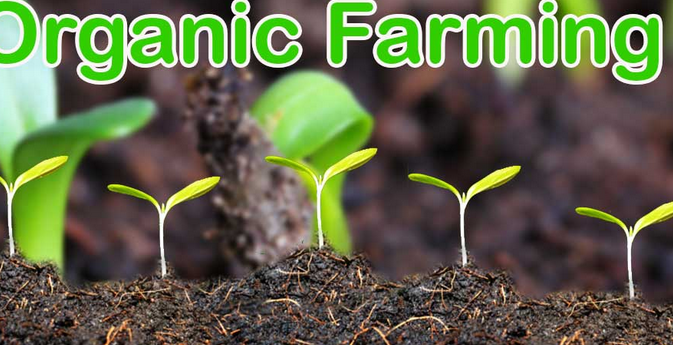|
Getting your Trinity Audio player ready...
|
In a time where taking care of our environment is crucial, organic farming stands out as a fantastic way to grow food. This kind of farming uses traditional methods and loves nature, bringing lots of good things not just to the farm but also to everything around it. Let’s explore the green world of organic farming and see why it’s great for the Earth, our health, and the future of farming.

Taking Care of the Soil
Organic farming really cares about keeping the soil healthy. Instead of using fake pesticides and fertilizers, farmers use natural things like rotating crops, planting cover crops, and making compost. This helps the soil have lots of different living things, making it strong and able to last for a long time.
No Harmful Sprays
One cool thing about organic farming is that it doesn’t use fake pesticides. Instead, farmers use friendly bugs, plant different crops together, and use other nice ways to protect their plants. This keeps the food safe and also helps the environment.
Keeping Water Clean
Regular farming sometimes uses chemicals that can get into the water and make it dirty. But with organic farming, farmers use natural fertilizers and are careful with water. This helps keep water clean and healthy for everyone.
Lots of Different Plants and Animals
In organic farming, there are many different plants and animals. Farmers don’t use genetically modified things and like using old kinds of plants. This helps keep many different plants and animals around, making everything strong and healthy.
Happy Animals
When it comes to animals, organic farming is all about making sure they’re happy. Animals get to do things they like, have a good place to live, and eat food without fake stuff. This makes the animals feel good, and the food they give us is better too.
Tasty and Healthy Food
Because organic farming takes care of the soil, the food it grows is full of good things. Some studies say that organic fruits and veggies might have more vitamins and good stuff that’s good for our bodies. So, eating organic food can be good for us.
Good for People’s Health
Organic farming also helps people by giving them food without harmful things. Choosing organic food means we eat less stuff that might make us sick and more stuff that’s good for us.
Helping the Earth
Organic farming doesn’t hurt the Earth as much as regular farming does. It uses less gas and makes less pollution. By doing things that are good for the planet, organic farming is like a friend to the environment.
Helping Local Places
This means that when we buy organic food from local farmers, we help our neighbours and make our community stronger.
Making Farming Better
Organic farming is like a guide for making farming better in the future. It shows how we can grow food that’s good for us and the Earth. By using smart ways of farming, we can have a future where farming works with nature instead of against it.
In the green fields of farming, we find a way to grow food that’s good for everyone. It’s not just about tasty and healthy food but also about keeping the Earth happy. As we enjoy the good things from organic farming, we’re making sure that the way we grow food is kind to the planet and keeps getting better for the years to come.
Less Waste, More Efficiency
Organic farming often emphasizes reducing waste and using resources efficiently. By recycling organic matter, like leftover crops and compost, farmers can create a closed-loop system that minimizes waste and maximizes the use of natural resources.
Supporting Local Economies
Buying organic food from local farmers helps support local businesses. This means that the money spent on organic produce goes back into the community, helping it grow and thrive.
Tackling Climate Change
Organic farming plays a role in fighting climate change. By avoiding synthetic chemicals and using methods that promote healthy soil, organic farms can trap carbon in the ground, helping to reduce the impact of climate change.
Community Connection
Organic farms often foster a strong sense of community. Farmers markets, Community Supported Agriculture (CSA) programs, and other initiatives bring people together, creating a sense of connection between farmers and consumers.
Safer for Farm Workers
Without the use of harmful pesticides and chemicals, farming provides a safer working environment for farmers and farmworkers. This not only protects their health but also contributes to the overall well-being of those working in agriculture.
Resilience to Pests and Diseases
Through diverse planting methods and natural pest control, farming builds resilience against pests and diseases. This reduces the need for chemical interventions and fosters a more balanced and sustainable farming ecosystem.
Heritage and Heirloom Varieties
Farming often involves the cultivation of heritage and heirloom plant varieties. These traditional varieties are not only flavorful but also contribute to the preservation of agricultural biodiversity.
Conclusion
So, there you have it—the wonderful world of organic farming! It’s not just about growing tasty and healthy food. It’s also about taking care of the Earth, making communities stronger, and thinking about the future. Organic farming shows us that we can grow food in a way that’s good for everyone.

